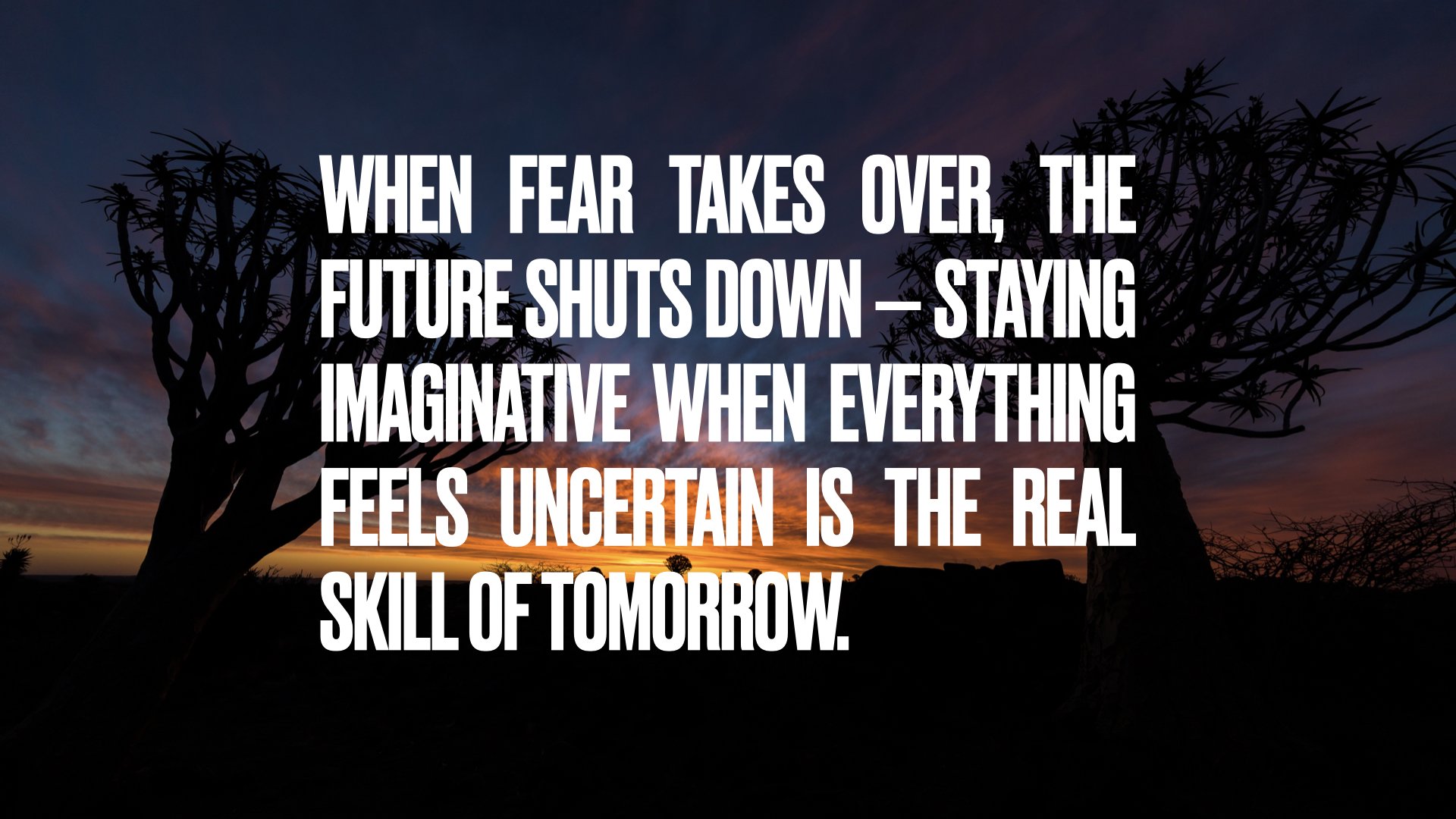When Fear Takes Over, the Future Shuts Down
Why your team isn't thinking about the future — and what you can do about it
In a world obsessed with productivity hacks and efficiency metrics, we often forget what truly sets us apart as humans:
Our ability to imagine the future.
We’re wired for foresight. We plan projects, envision possibilities, and prepare for what’s next. But under pressure — especially in uncertain or volatile times — this superpower quietly shuts down.
What happens when stress takes over?
When fear, stress, or uncertainty rise, our brains shift into survival mode. It’s a built-in mechanism to protect us — but it comes at a cost
🧠 Long-term thinking? Blocked.
🧠 Creativity? Suppressed.
🧠 Bold decisions? Replaced by quick fixes.
In short: imagination goes offline — right when we need it most.
And yet, these are the exact skills companies need to innovate, adapt, and grow through change.
Future Competence Is Not About Predicting — It's About Possibility
“Future competence” — as defined in current research — isn’t just a set of skills. It’s the ability to stay open, imaginative, and forward-looking even when the ground is shifting.
It means helping people think clearly when things feel unclear.
It means leading with courage, not just control.
And it means protecting the mental space where creativity and vision can thrive.
What Future-Ready Leadership Looks Like
If you’re leading a team, your job isn’t to have all the answers.
It’s to create the conditions where your team can do their best thinking — especially when it's hardest.
Here’s how:
✔ Reduce fear, not just risk.
Psychological safety is a prerequisite for innovation. Without it, future thinking is replaced by present panic.
✔ Create mental space for imagination.
Deadlines matter — but so are big ideas. Make space for your team to think ahead and explore new possibilities.
✔ Watch out for “certainty traps.”
Catastrophizing, wishful thinking, and overconfidence can all cloud future-focused decisions. Name them, reframe them, and help your team stay mentally agile.
✔ Model future-orientation.
Show your own ability to tolerate ambiguity and still think creatively. That’s leadership people follow.
The Future Isn’t Found. It’s Made.
When fear takes over, the future shuts down.
But staying imaginative when everything feels uncertain — that’s the real skill of tomorrow.
And it’s one every leader can cultivate — not just in themselves, but in the people they lead.

